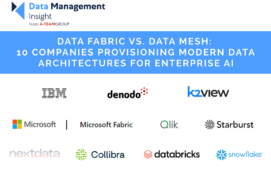
By Clare Rowley, Head of Business Operations at the Global LEI Foundation.
In May 2020, the European Commission put forward a series of measures designed to strengthen the EU’s fight against money laundering and terrorist financing, including an Action Plan for legislative reform of the EU’s AML-CTF framework in early 2021 (see related links below).
Against a backdrop of rising criminal activity across the EU during the Covid-19 health crisis, the Action Plan sets out steps to deliver a future-proofed framework for better enforcement of existing AML-CTF rules, together with a revision of those rules and an overhaul of the EU’s supervisory and enforcement architecture.
The communication on the Action Plan acknowledges that: “The scope of EU legislation needs to be expanded to address the implications of technological innovation and developments in international standards.” It also notes that: “other measures might include facilitating the use of digital identification for remote customer identification and verification of customer identity as well as to establish business relationships remotely.”
In both of these regards, the Legal Entity Identifier (LEI) can play a crucial enabling role.
The LEI is an internationally recognized standard that harnesses precisely the kind of technological innovation referenced in the Action Plan. The LEI is a 20-character, alpha-numeric code, based on the ISO 17442 standard, that connects digitally to key reference information to enable clear and unique identification of legally registered persons, companies and organizations collectively known as legal entities.
Usefully, the Global LEI System is already administered at the EU level, by the Global LEI Foundation, and is designed to provide greater transparency for governments and industries around the world, both by enabling the issuance of LEIs and by providing open, unrestricted access to LEI data on a global scale.
As a regulatory-endorsed system overseen by the LEI Regulatory Oversight Commission (LEI ROC) (see related links below), it is the only system that establishes a recognized, monitored and standardized global identity for legal entities, linked to the entity’s national ID system.
How the LEI could combat e-commerce fraud: a recent example
In June, Ville Itälä, Director-General of the European Anti-Fraud Office (OLAF) confirmed that the office had detected a spike in online shops selling personal protective equipment, with a considerable share being set up by fraudsters. “Based on preliminary information that we have collected, about 20,000 ‘COVID-19’ shops were set up on e-commerce platforms that allow a seller to start selling masks, sanitizers, test-kits, with no formalities and without having their identity checked,” he said, adding that OLAF is getting “hundreds of complaints daily” from consumers that either did not get their delivery or received fake or sub-standard products.
If LEI adoption had been a mandatory step in the registration process for these e-commerce platforms, their identity could have been automatically verified prior to their engagement with consumers. As a result, their capacity to trade without the required supervision would have been removed entirely.
Supporting financial institutions
The LEI also assists financial institutions in their effort to combat money laundering and terrorist funding. As an open, digitized identification standard, the LEI enables financial institutions to conduct fully automated, straight-through processing. By replacing outdated manual checks, the LEI increases both the speed and the effectiveness of client onboarding and ongoing compliance checks. This includes improving screening against sanctions and watch lists thereby enabling new efficiencies for both institution and client, lowering costs significantly.
By mandating the use of the LEI for customer verification in the EC’s forthcoming AML-CTF legislative reforms, the entity identification and verification processes in the EU financial ecosystem will be strengthened, and the opportunities for financial criminals to cheat the system will be dramatically reduced on a global scale.
“The mandatory use of common identifiers in reporting frameworks but also in all public information would allow to improve the quality of the data, reduce redundancy, enable data processing, aggregation and calculation, as well as assure the comparability between data from different sources and times,” emphasizes a spokesperson from the European Banking Authority. “A further increased use of LEI could potentially support the fight against money laundering and terrorist financing during both onboarding and subsequent monitoring of the business relationship and associated transactions to detect suspicious transaction and make the application of CDD measures more efficient.”
Carmine Auletta, Chief Innovation & Strategy Officer at InfoCert, adds: “Covid-19 is catapulting the entire economy several years forward in its evolution toward digital transformation. From banking to supply chain management, industries everywhere are accelerating the digitization of their processes. In such context, trustworthy digital identity solutions allow to streamline onboarding procedures and improve security and efficiencies of digital transactions. In regulated markets, Know Your Customer (KYC) and Customer Due Diligence (CDD) processes have historically been designed for face to face/same location interactions, but this assumption is proving increasingly ill-suited for a digital age. Digital certificates and LEI codes represent two key enabling factors capable of bridging digital identity schemas with the onboarding of remote customers subject to KYC/CDD, boosting reliability and security for the most critical digital transactions.”
Subscribe to our newsletter




